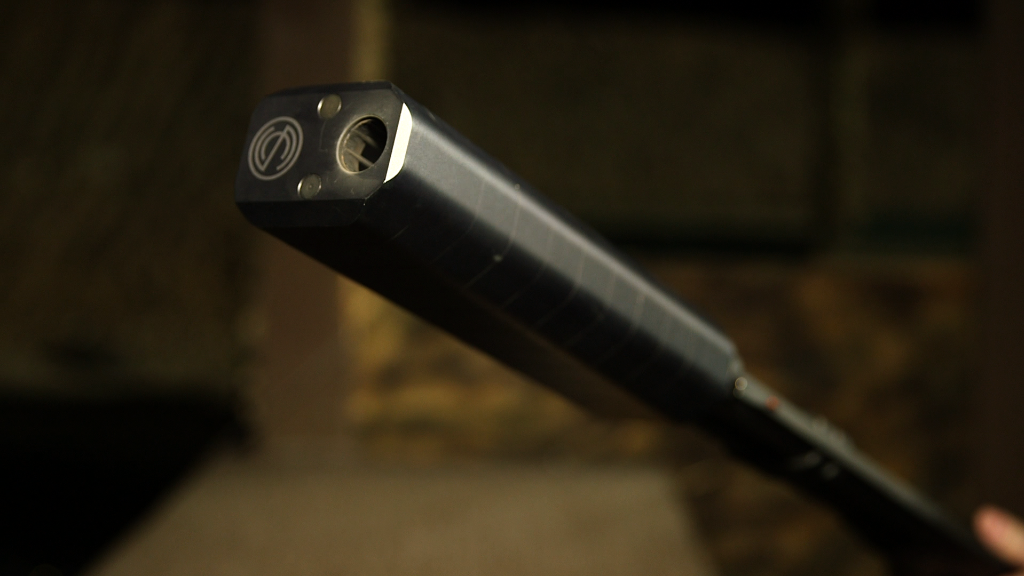
This is the thing about gun silencers: They're not really silent.
They're not even what you would call quiet. Unless you consider jackhammers to be quiet.
That's why the gun industry prefers to call them suppressors, because they suppress, rather than silence, the deafening blast of a gunshot.
It's definitely not like in the movies, where silencers are as quiet as a whisper.
That hasn't stopped companies from making new silencers.
The latest one, made for shotguns is from SilencerCo of West Valley City, Utah. The company demonstrated the silencer to CNNMoney at a shooting range during the Shot Show, a gun industry conference in Las Vegas last month.
Related: Gun silencer sales are booming
The noise generated by the shotgun when fired was 155 decibels, as measured by SilencerCo.
The American-Speech-Language-Hearing Association rates that level as "painful" and compares it to "fireworks at three feet."
CNNMoney then fired the shotgun fitted with its silencer -- the Salvo 12 -- which was less loud. But not by that much: 132 decibels.
The hearing association still rates that as painful, and compares the sound to a jackhammer.
This is why silencer companies actually recommend the use of hearing protection even when using their products. They've been around for some time -- automotive engineer Hiram Maxim invented the first silencer in the early 1900s, basing the design on a car muffler.
Related: Kalashnikov, made in the USA
Silencers are expensive and can cost anywhere from $700 to $1,400.
They are also not that easy to buy.
The federal government slapped restrictions on them in 1934 with the National Firearms Act, which was passed in an effort to control gang violence.
The government has the same regulations for silencers as a machine gun.
That means any person who wants to buy a silencer has to mail or fax his or her photo and fingerprints to the Bureau of Alcohol, Tobacco, Firearms and Explosives and also pay a $200 tax.
The approval process can take nine to 10 months.
Compared to that, its way easier to buy a gun, which requires a background check that involves showing a photo ID and electronically submitting a form to the ATF. The entire process doesn't take more than 20 minutes.
So the bottom line for silencers is that they don't do away with the boom of a gunshot, they are expensive and they are hard to buy.
No wonder they appeal only to the most dedicated gun users, like hunters, who usually don't like to wear ear protection.

